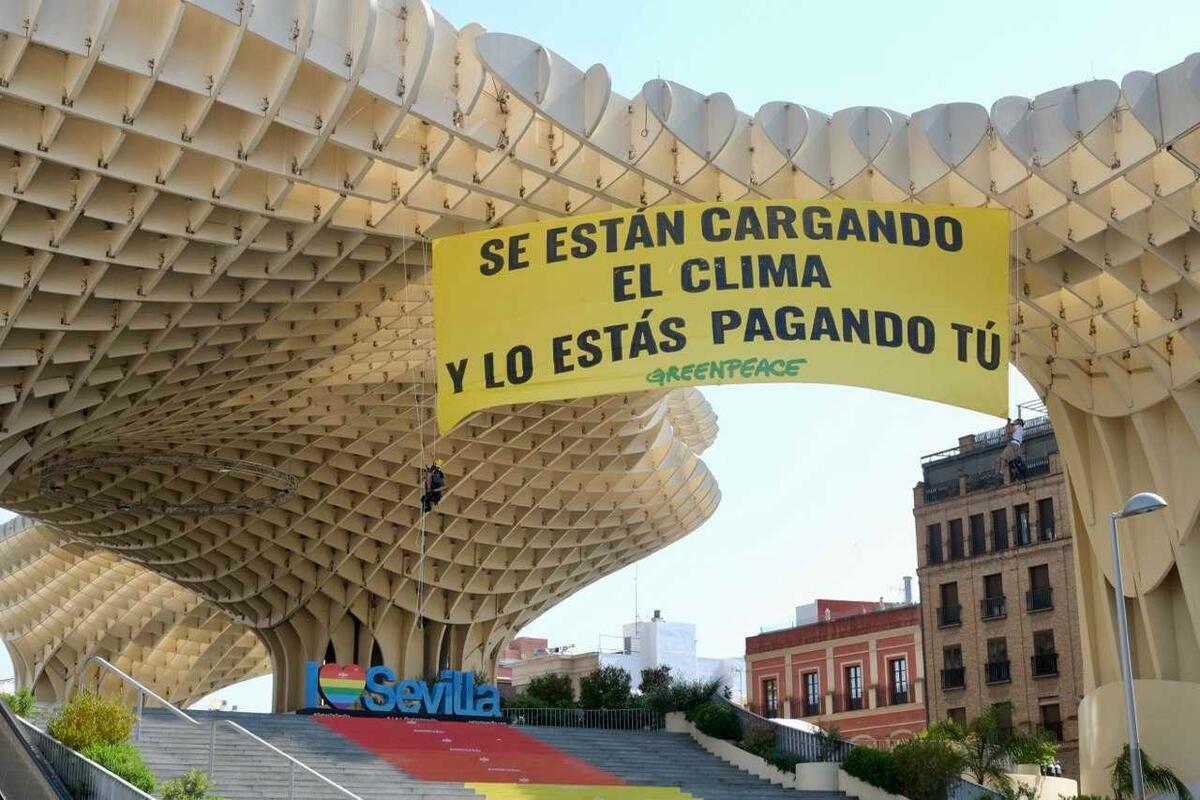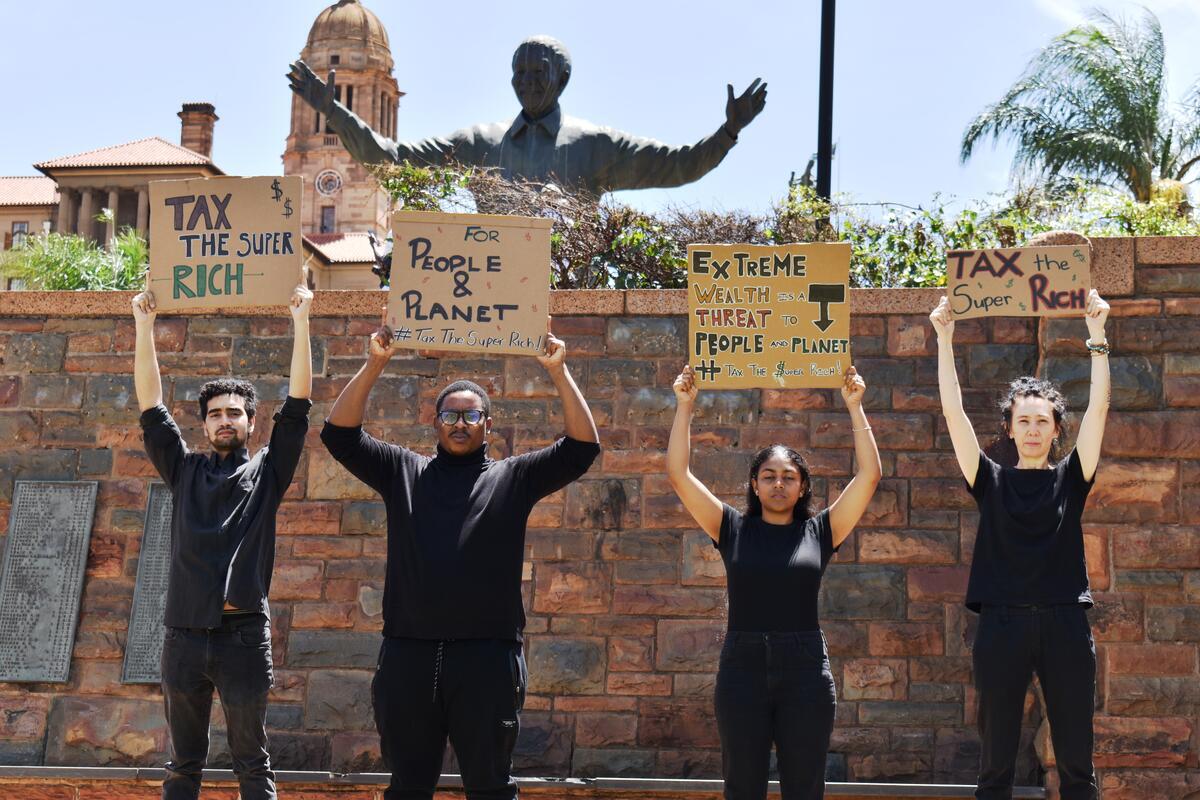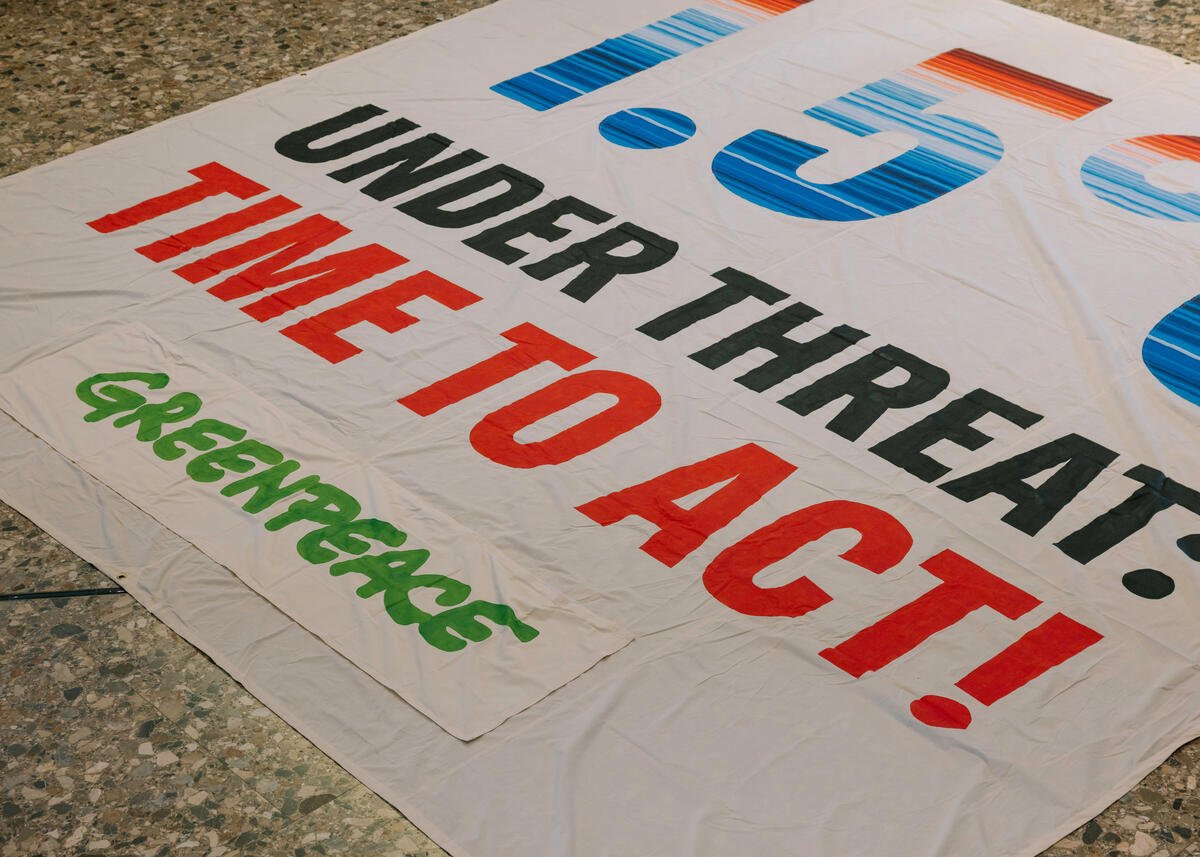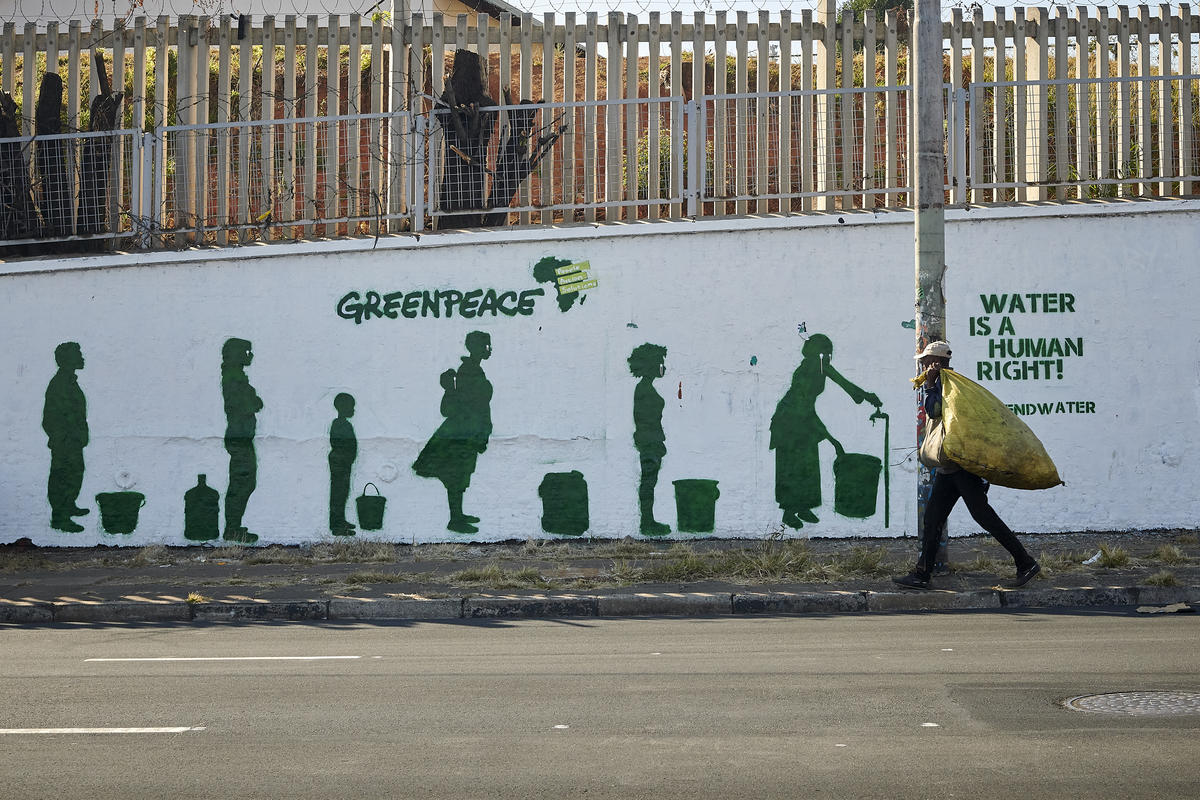
Graffiti on the streets of Johannesburg, South Africa highlight water as a human right.
When the Universal Declaration of Human Rights was created in 1948, it was done so to hold firm to the highest of ideals, a set of entitlements that allow all people to live with dignity, freedom, equality, justice, and peace. Decades on, this set of inalienable and universal rights remains a foundation upon which we, at Greenpeace and like-minds beyond, stand in our commitment to a greener, healthier and more peaceful world. Making this connection between human rights and a harmonious healthy planet is possible when one begins to understand the impacts of climate change and the ways in which those impacts affect us, our families and communities, and the communities of the future.
IMPACTS OF CLIMATE CHANGE
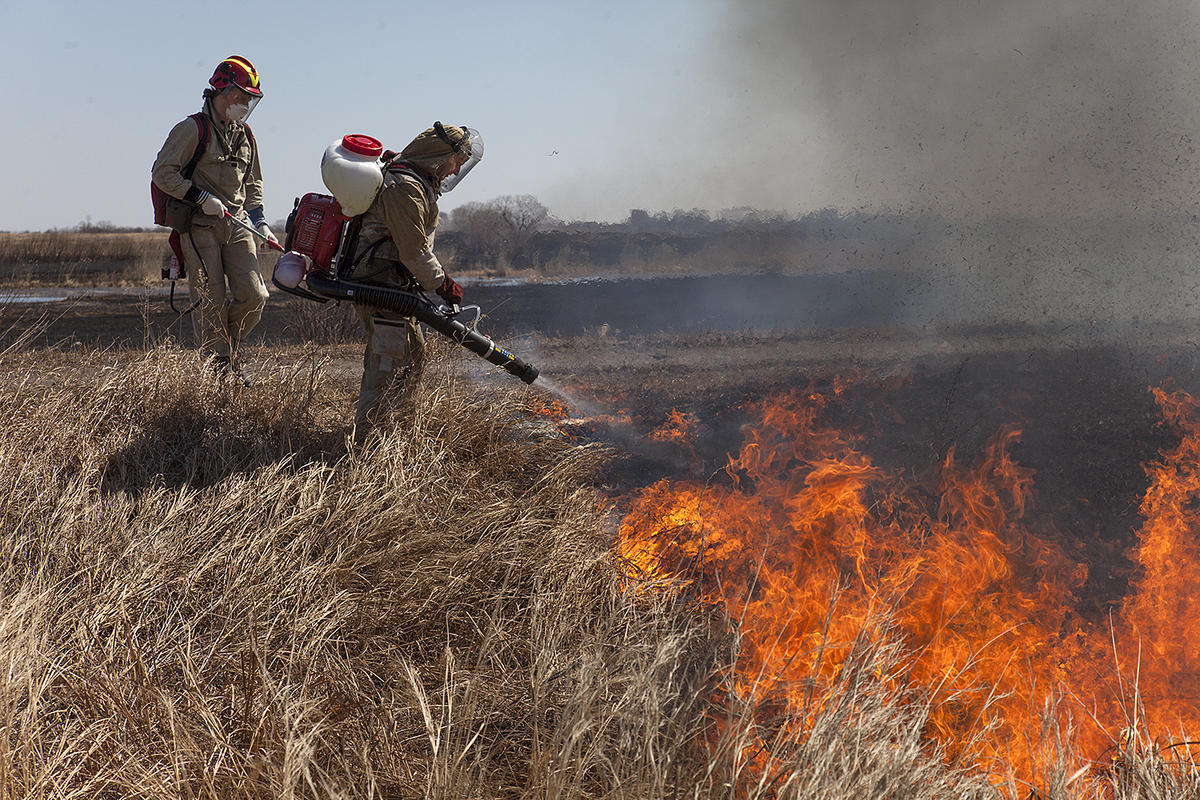
Climate change is intensifying wildfires, like this one in Russia
Here at Greenpeace we know all too well the effects of climate change but it can never be overstated – global temperatures are high and will continue to rise for decades to come due to greenhouse gas emissions (GHGs) produced from human activity. Carbon emissions and climate change has major impacts on our ecosystems including air pollution; temperature extremes resulting in droughts and heatwaves; and rise in sea levels resulting in floods. Climate change also poses a major threat to human life causing threats to physical health and survival, food and water shortages, and loss of property, home, and way of life; with the most vulnerable in our society – like children, the elderly, and marginalised communities – often being the most at risk.
CLIMATE CHANGE THREATENS HUMAN RIGHTS
Human rights expresses the entitlement of all people to be treated equally, to live their life in safety and freedom, and to be protected by their government. So many of our human rights, such as right to life, health, food, and an adequate standard of living, are adversely affected by climate change. We see the evidence of this, for instance, with each new extreme weather event and the devastation that ensues such as death and the destruction of crops and property. Without further action, climate change will continue to devastate people and the planet, and human rights will continue to be violated.
During COP 24, the UN climate change conference in Poland, 34 UN human rights experts – on issues ranging from business, development, and environment – called upon countries to take human rights-based climate action in line with the 1.5C temperature target in the Paris Agreement. The landmark joint statement has implications well beyond this climate conference, and sends a clear signal to national governments and fossil fuel companies alike.
The independent UN experts called on states to, among other actions, “commit to urgently increase their ambition, given the grave nature of the climate crisis and the pressing need for scaled-up mitigation efforts”; and “encourage businesses to integrate climate change considerations in their policies and practices, including their human rights due diligence processes and impact assessments.”
A NEW APPROACH TO FIGHTING CLIMATE CHANGE
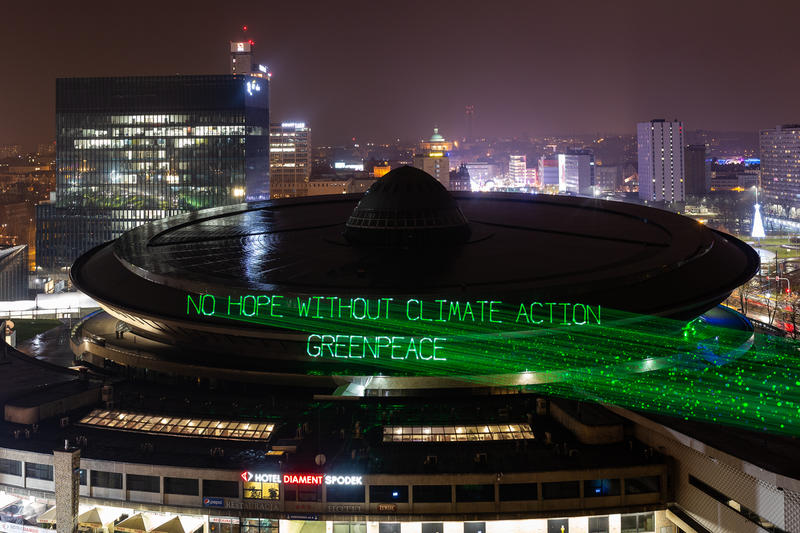
Greenpeace activists project a message to world leaders at COP24 demanding urgent action to turn the tide on the worsening climate emergency.
As the window of time available to us to make a difference narrows we must find ways to make lasting global change. The answer is Climate Justice.
Over the past decades a climate justice movement has boomed across the world. A United Nations Environment Program (UNEP) report details that, as of March 2017, there were more than 654 cases filed in the United States and, using a larger definition of climate litigation, over 230 cases brought in other countries. More and more cases like this are being filed around the world at a phenomenal speed. Climate justice is the fulfillment of human rights in the face of climate change. It is a process of addressing the climate crisis as a human rights crisis and using the court of law to hold corporations and governments accountable. Fossil fuel corporations cannot continue to act with impunity, caring only for profit, and governments can no longer ignore the connection between their duty to protect human rights and climate change. Through Climate Justice finding new ways of living and existing is not only possible but imperative.
THE PEOPLE’S GUIDE
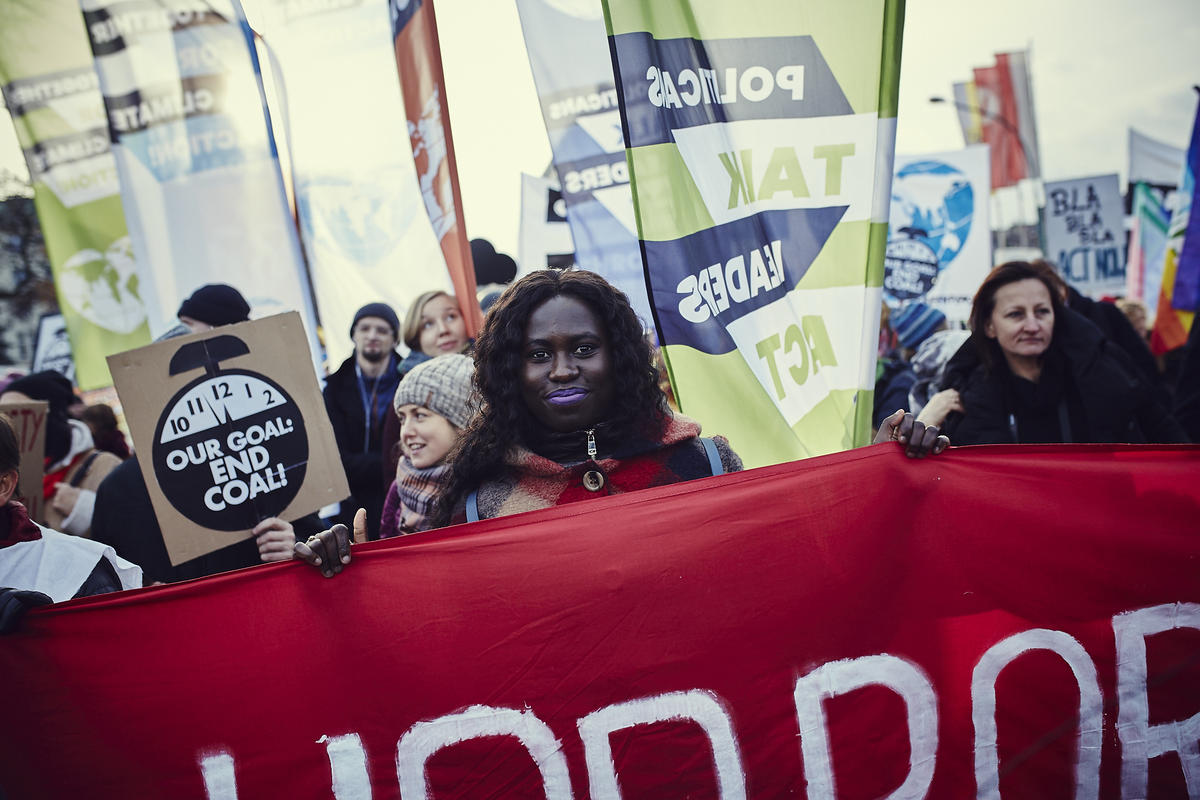
Several thousand people marched in the Climate March at COP24 in Katowice, Poland, on December 8, 2018.
In solidarity with the inspiring people and communities of the Climate Justice Movement and in response to requests to assist in creating people-powered climate cases, Greenpeace has created a People’s Guide.
Drawing on the efforts of many, the People’s Guide is a non-exhaustive document that provides some ideas for community members, NGOs, and public interest lawyers on how to build cases that address the impacts of climate change from a human rights perspective. The guide specifically targets holding governments accountable for inadequate climate mitigation. It also showcases and celebrates the many phenomenal landmark cases (several of them successful) that are being brought all over the world. Ultimately the People’s Guide shows that with effort and support from experts, communities can rise up and lead the way for safeguarding themselves their rights and the rights of future generations.
AN IDEA WHOSE TIME HAS COME
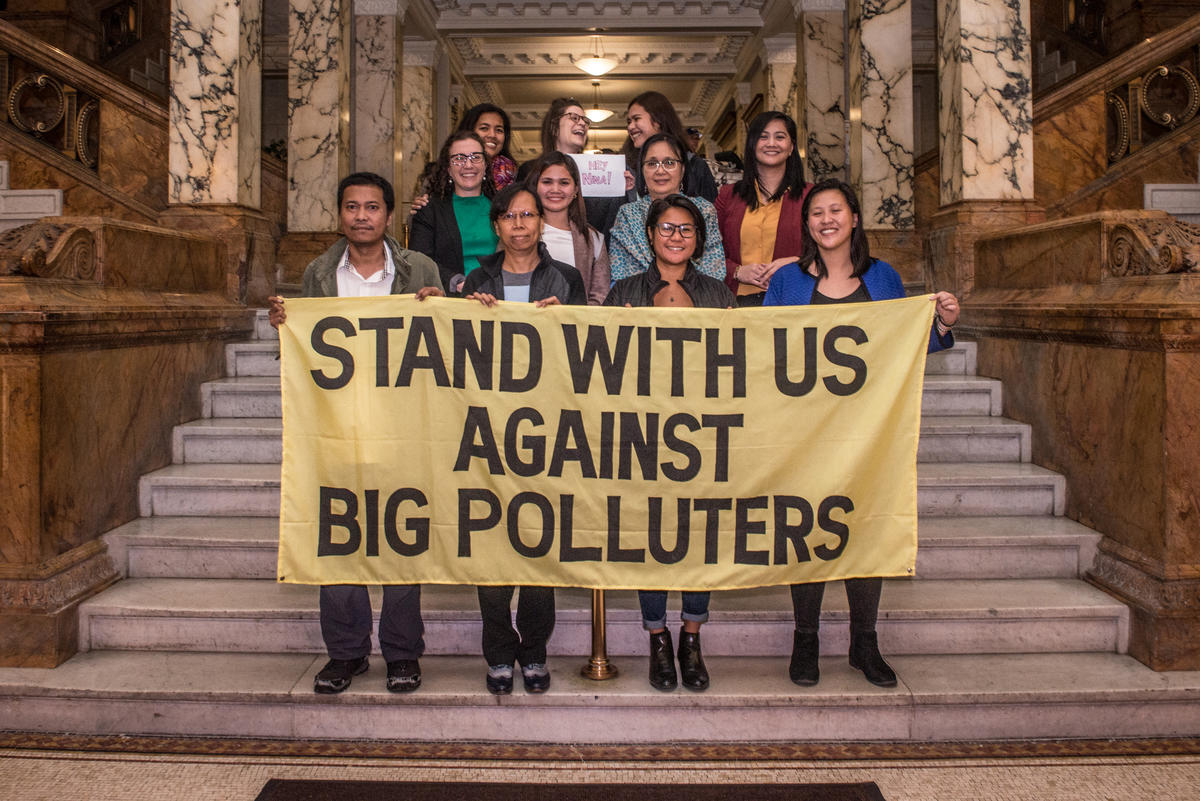
Around the world, community groups are taking on the “Big Polluters”for human rights violations resulting from climate change.
Climate Justice tackles climate change and the violation of human rights one case at a time. The stories of Climate Justice (showcased in the People’s Guide) are inspiring and powerful.
In Pena and Others vs Government of Colombia 25 young people sued the government for failing to honour its commitment to tackling climate change. In April 2018 they won their case, the ground-breaking decision recognising for the first time the Amazon Basin as a subject of rights.
In Greenpeace Southeast Asia and Others vs Carbon Majors the largest companies producing crude oil, natural gas, coal, and cement are being held accountable for contributing to global GHG emissions and climate change. This is the first national human rights investigation of its kind and the Commission is expected to deliver a decision in 2019.
In Swiss Senior Women For Climate Protection vs Swiss Federal Government a group of over 1000 senior Swiss women are arguing that Switzerland’s GHG emissions violate their rights to life and to private and family life which are protected in the Swiss constitution. As of December 2018, the Swiss Federal Administrative Court, contrary to overwhelming scientific evidence, has ruled that women over 75 years old are not more impacted by the effects of climate change than other population groups in Switzerland. The senior women are now considering their next steps. In the meantime litigants from all cases campaign tirelessly, bringing their cases into the court of public opinion – change is palpable.
GREENPEACE, CLIMATE JUSTICE AND WHERE TO FROM HERE?
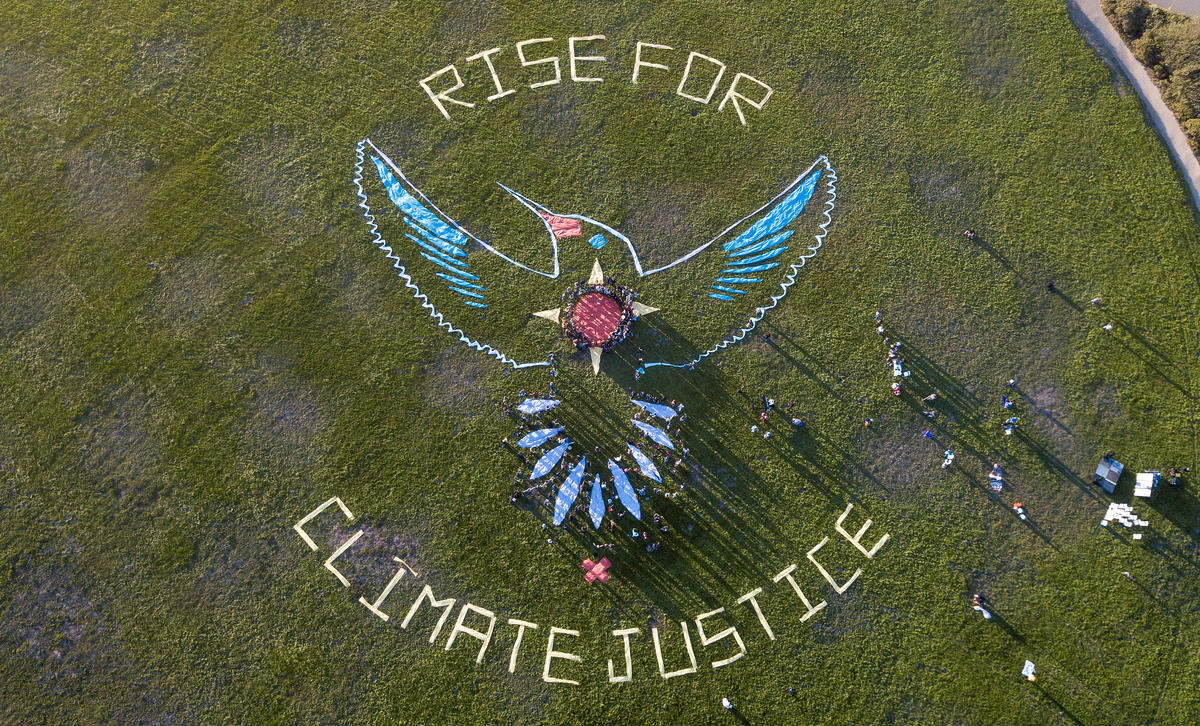
Artist John Quigley creates an iconic visual message themed, Hummingbird Rising: Human Mandala for Climate Justice! This co-created symbol is a message to world leaders of all levels that the climate has changed and so must we © Josh Edelson / Greenpeace
With the support of our partners all over the world, affected communities, urban citizens, and other NGOs, fossil fuel companies and governments will begin to make a change. With enough pressure they will be obligated to reject the old story of how we live and survive, and rediscover how to produce goods in a way that respects people and planet. Ultimately while climate litigation is not a perfect catch-all solution we join the Climate Justice Movement in standing for the protection of human rights. We want governments and corporations to be held accountable for climate change. We want people, especially the most vulnerable, protected, their human rights safeguarded. We want a new way of existing in harmony with the planet and each other. This is a future that Climate Justice makes possible, a future we believe in and are creating together, now.
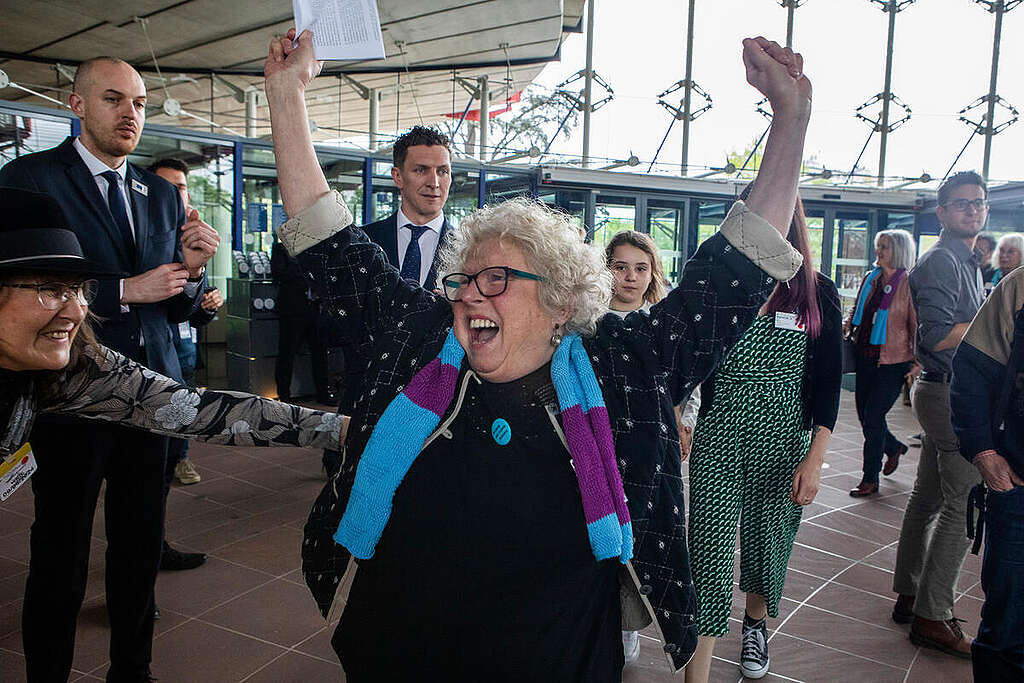
It’s time for all of us to assert our rights, demand climate justice, and a dignified way of life.
Take action
